Reading comprehension Normal Geography Worksheets for Ages 3-7
8 filtered results
-
From - To
Explore our engaging Reading Comprehension Normal Geography Worksheets designed specifically for children aged 3 to 7! These interactive worksheets combine essential geography concepts with fun reading activities, helping young learners develop literacy and comprehension skills in an enjoyable way. Each worksheet features colorful illustrations and age-appropriate texts that captivate young minds while fostering a love for learning about the world around them. Perfect for both classroom settings and home use, our resources support early childhood education goals. Encourage your child’s curiosity and understanding of geography with these delightful worksheets, making learning about places, cultures, and environments an exciting adventure!
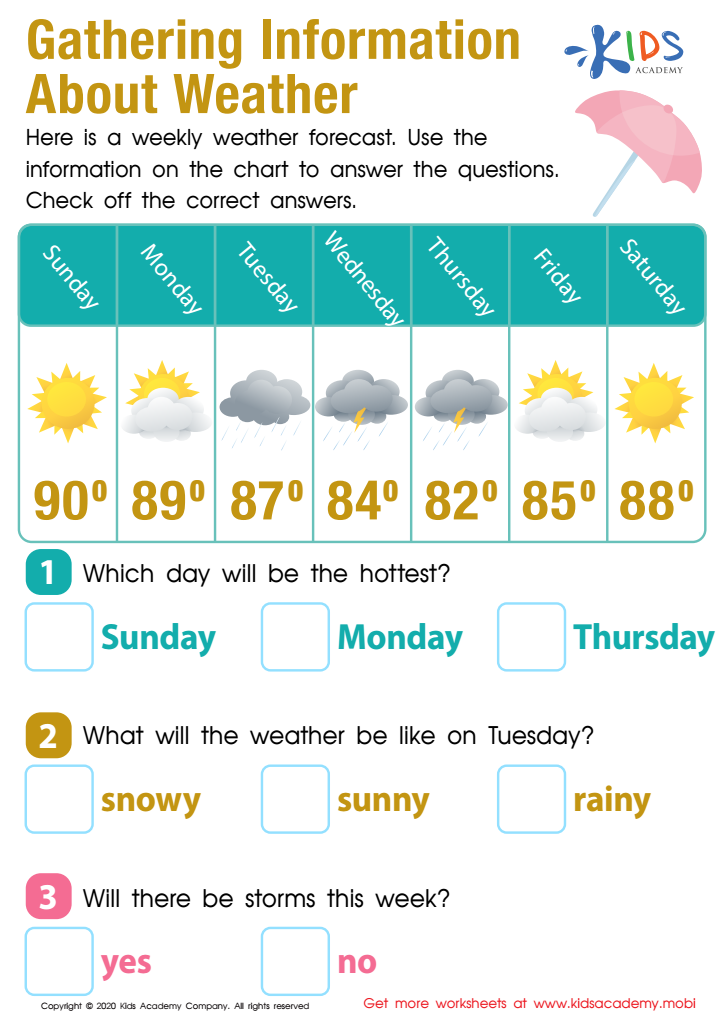

Gathering Information About the Weather Worksheet
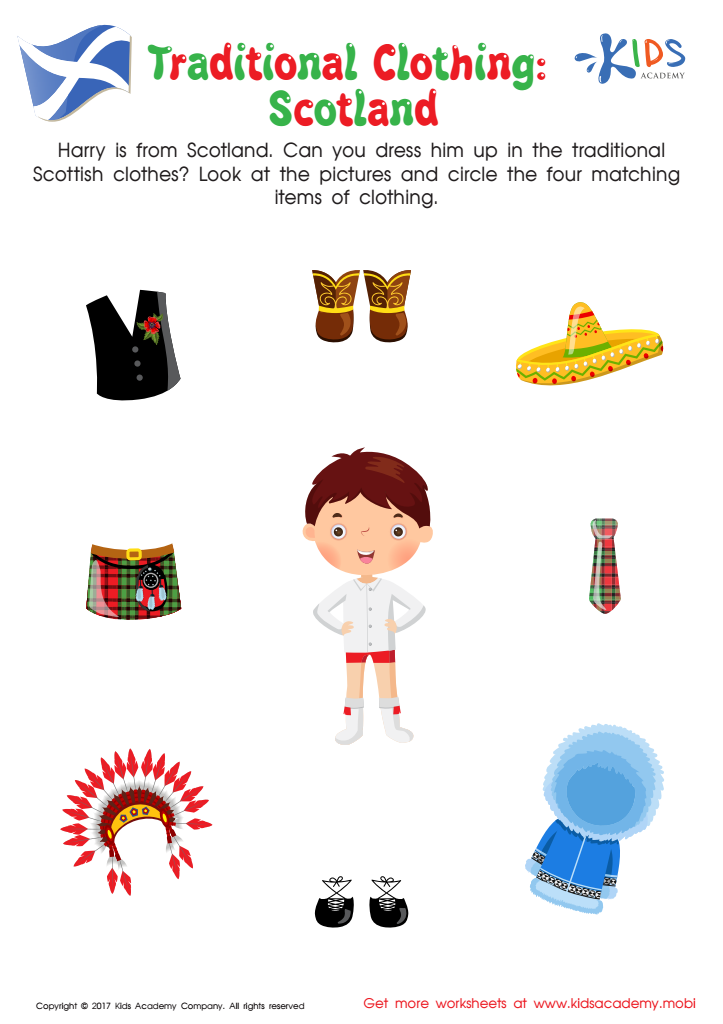

Traditional Clothing in Scotland Worksheet
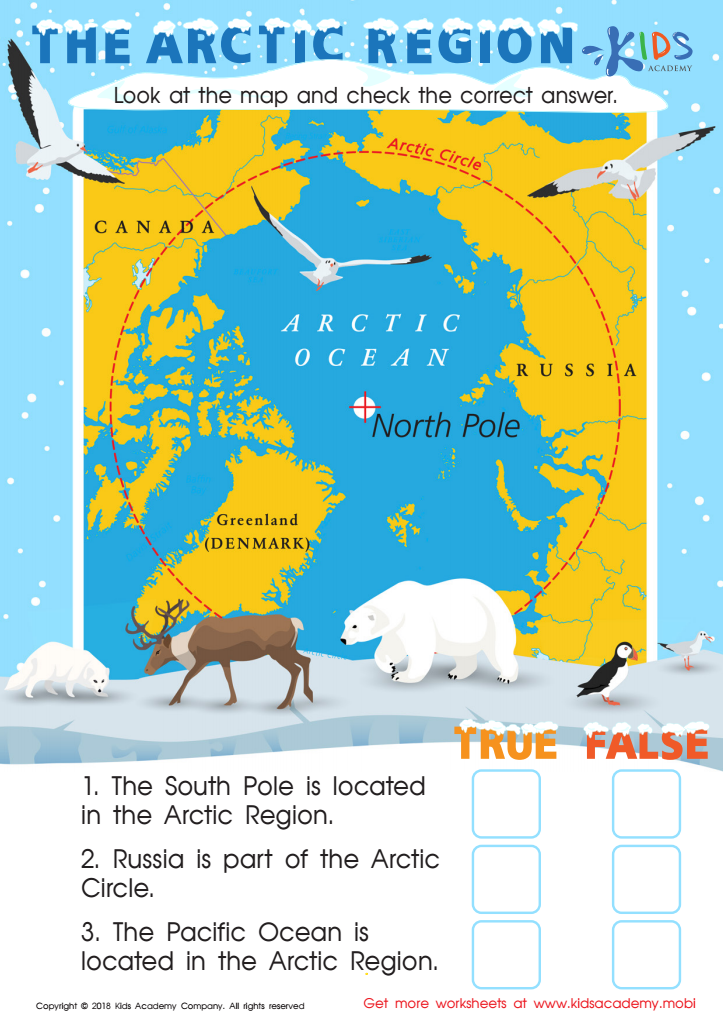

The Arctic Region Worksheet
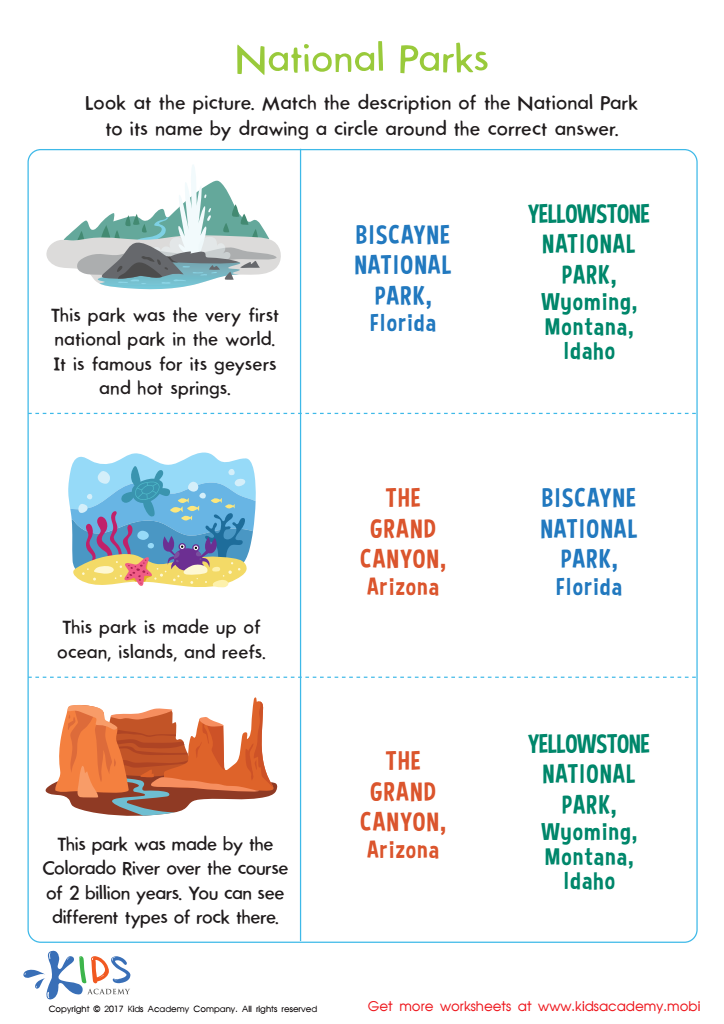

National Parks Printable
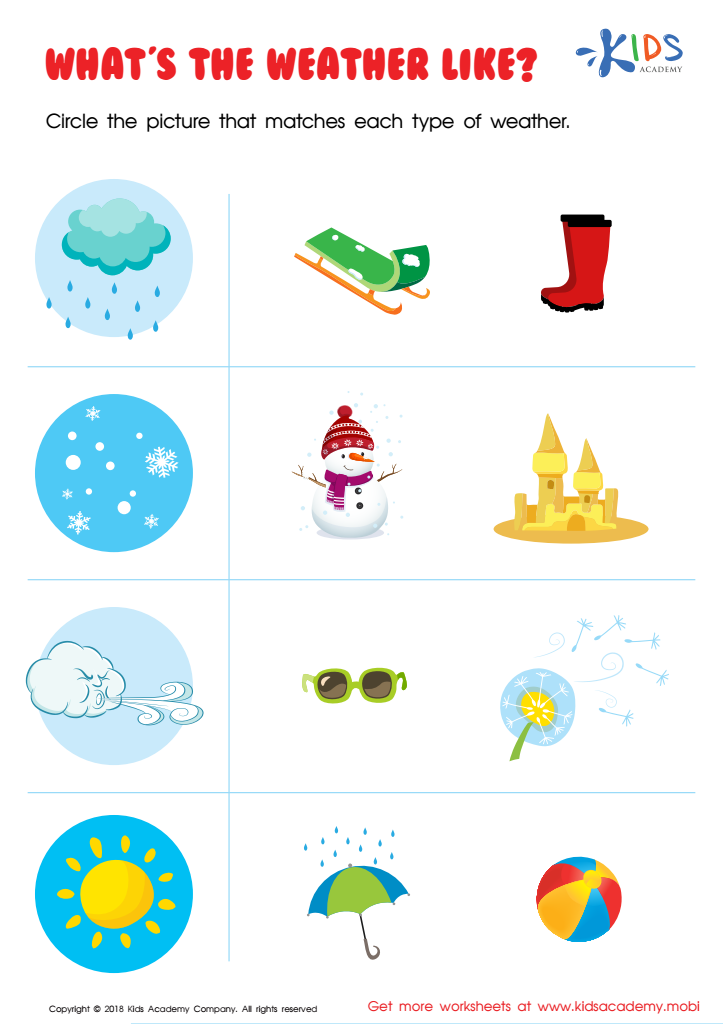

What's the Weather Like? Worksheet
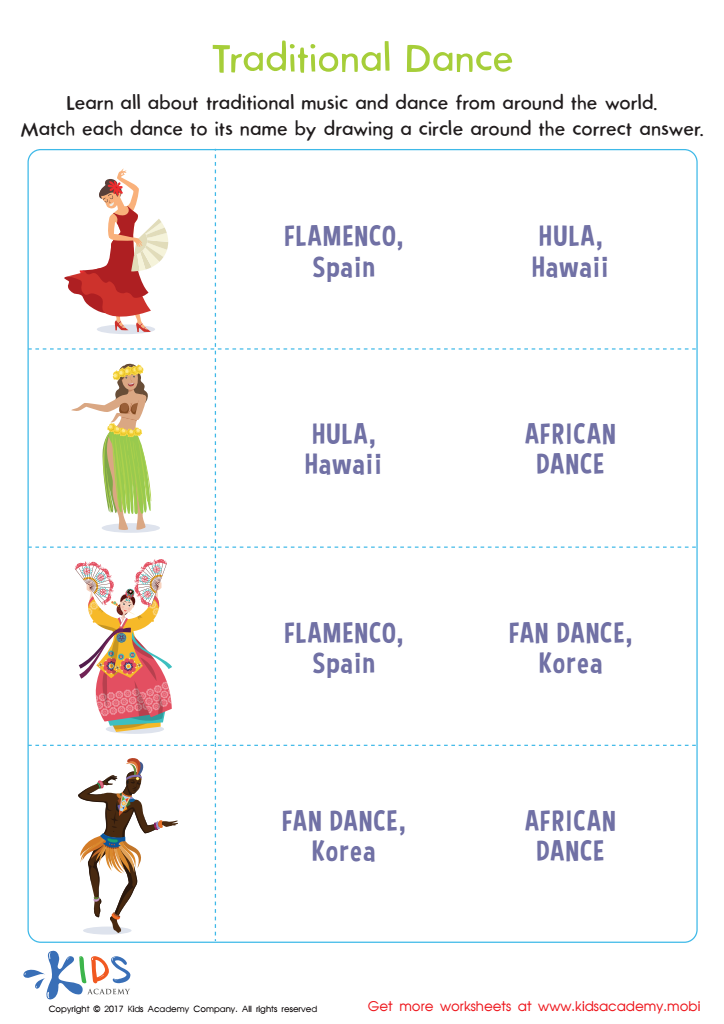

Traditional Dance Printable
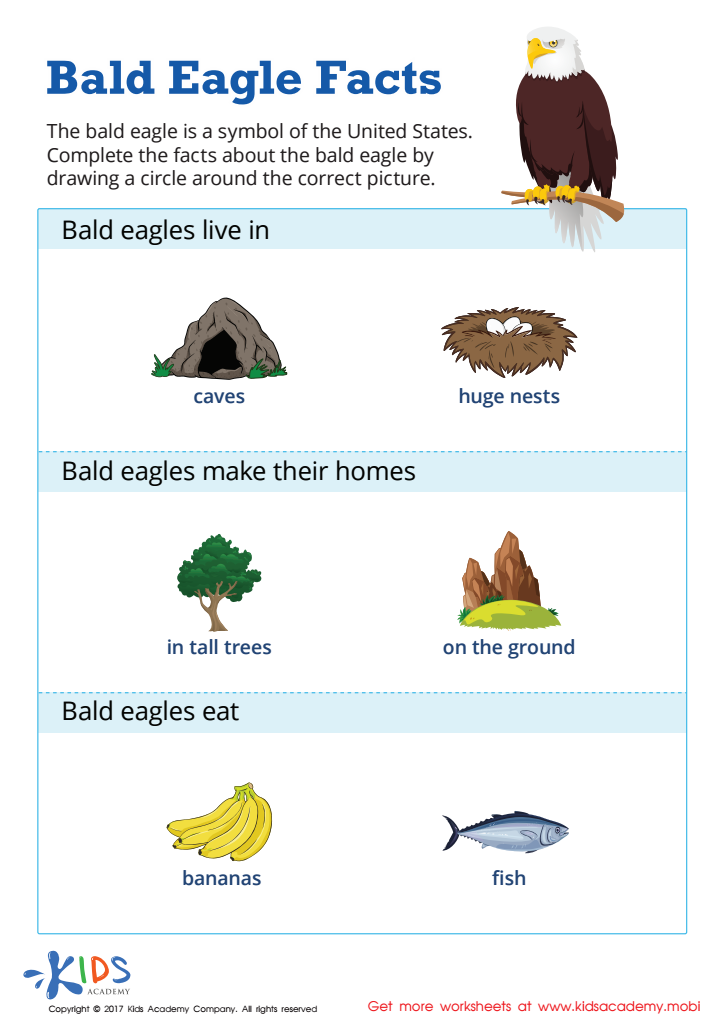

Bald Eagle Facts Worksheet
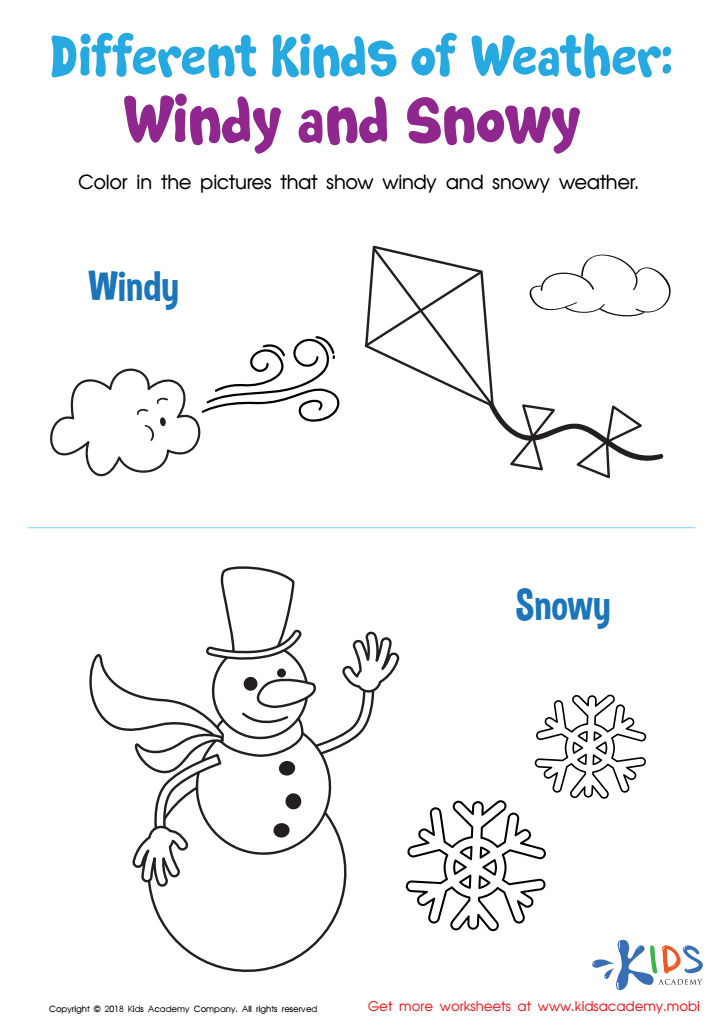

Different Kinds of Weather: Windy and Snowy Worksheet
Reading comprehension in early childhood, especially concerning subjects like geography, is crucial for several reasons. First, it lays the foundation for lifelong learning. By ages 3-7, children's brains are highly receptive, absorbing complex concepts and developing critical thinking skills. If parents and teachers prioritize reading comprehension in geography, they enable children to understand their world—their local environment, cultures, and space—fostering curiosity and empathy.
Moreover, engaging children in material that includes maps, landforms, and communities can significantly enhance their visual-spatial skills and cognitive development. It helps them grasp abstract concepts, such as distance, direction, and relationships between places, which are vital for daily navigation and problem-solving later in life.
Fostering reading comprehension in geography also promotes language development. Children learn new vocabulary, improving their expression and communication skills. This holistic development supports academic success across subjects, building the foundation for complex learning in math, science, and social studies as they progress.
Incorporating geography into reading enhances storytelling and cultural understanding, encouraging a sense of place and belonging. For parents and teachers, nurturing these skills strengthens a child's ability to interact with and interpret the world around them, laying the groundwork for informed, engaged citizenship.
 Assign to My Students
Assign to My Students














